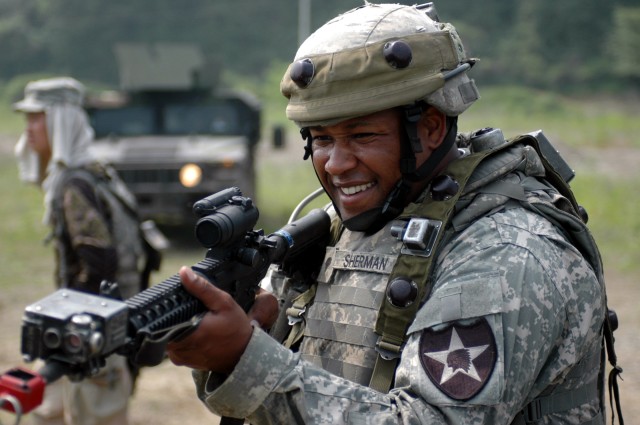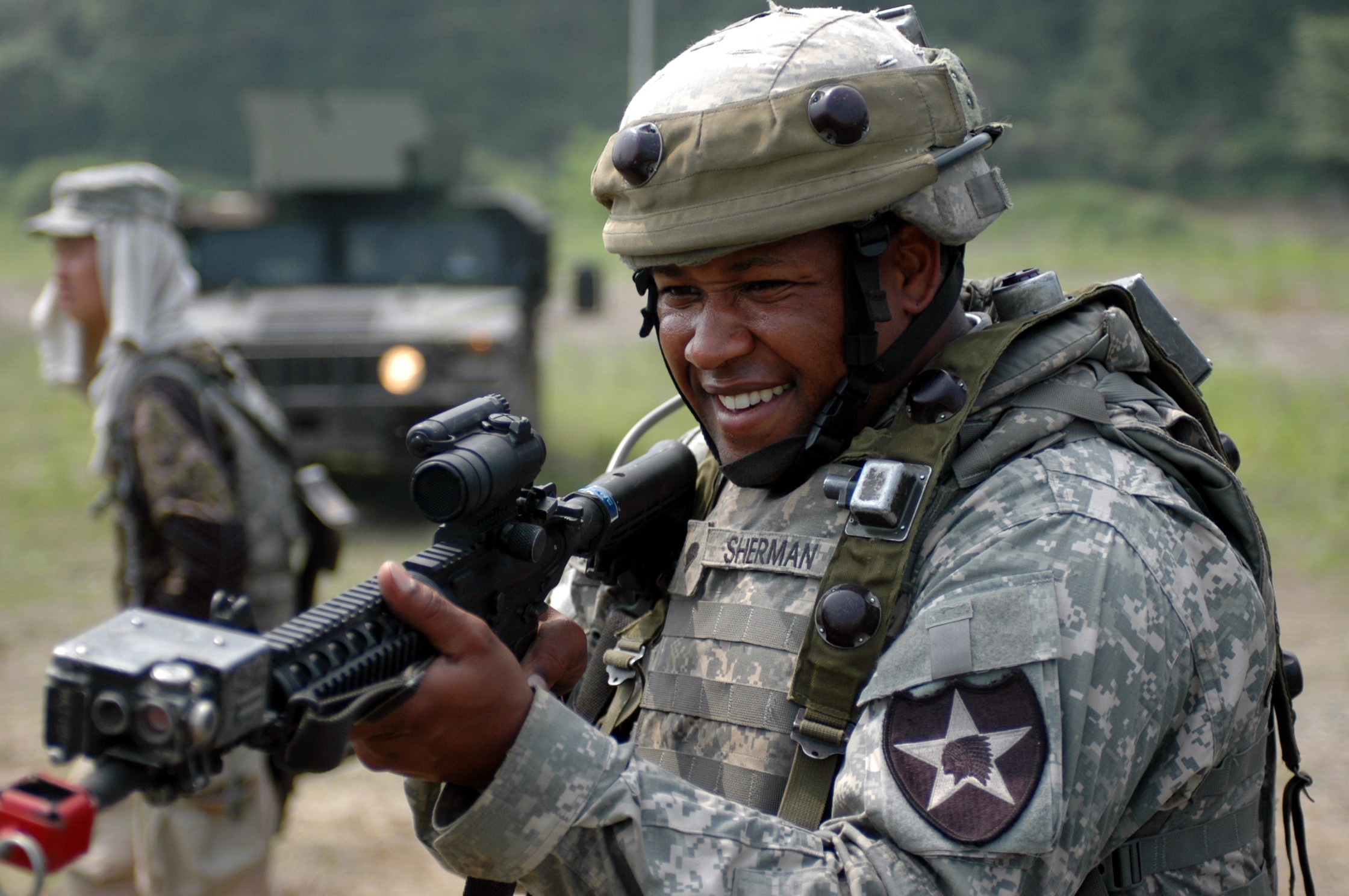Day-to-day missions sometimes limit Soldiers' ability to conduct realistic training - which provides essential knowledge for real-world missions.
The Division Special Troops Battalion's A Company conducted a field training exercise to enhance Soldiers' survivability skills and keep them proficient in their Military Occupational Specialties June 2-5 in the vicinity of Dongduchon.
One purpose of the training was to get the Soldiers certified on the Satellite Tactical Terminals, Joint Node Networks and Satellite Mobile Anti-Jam Reliable Tactical Terminal, also known as the Smart-T.
The Soldiers understood the importance of achieving proficiency on those machines.
"Anything can happen," said Spc. Victor Burnett, communications operations specialist, Co. A, DSTB. "When things (equipment) need to be set up, we do it quickly and efficiently."
The certification called for all three sets of equipment to be set up and running in one hour, something Burnett said wasn't a problem.
"We only took half-an-hour to set up the equipment," said Burnett.
Another aspect of the training was preparing Soldiers for going "down range" by reinforcing combat skills such as reaction to enemy attacks.
"There were three training sites," said Pfc. Henry Luna. "We took up positions in those areas with the objective to take down those areas."
That proved to be a difficult task.
"We were outnumbered," said Luna. "Both times we did an ambush today the Soldiers did a good job securing the area."
The constant attacks allowed Soldiers little time for good rest.
"Our goal was to attack at different times," said Luna. "Doing this kept the Soldiers sleep deprived."
The Soldiers acknowledged this method was working very well. "The sleep depravation was good training," said Spc. Brittany Bryant. "That combined with the simulation of actual combat was very fun; it fueled my adrenaline."
The training lasted four days, and despite the Soldiers' exposure to the heat and humidity of June in Korea, the training paid off.
"I've been with this unit for two years now," said Bryant. "Usually when we train, we train on signal tasks. Now we are training on Soldier tasks. We need this for survivability in combat situations."


Social Sharing